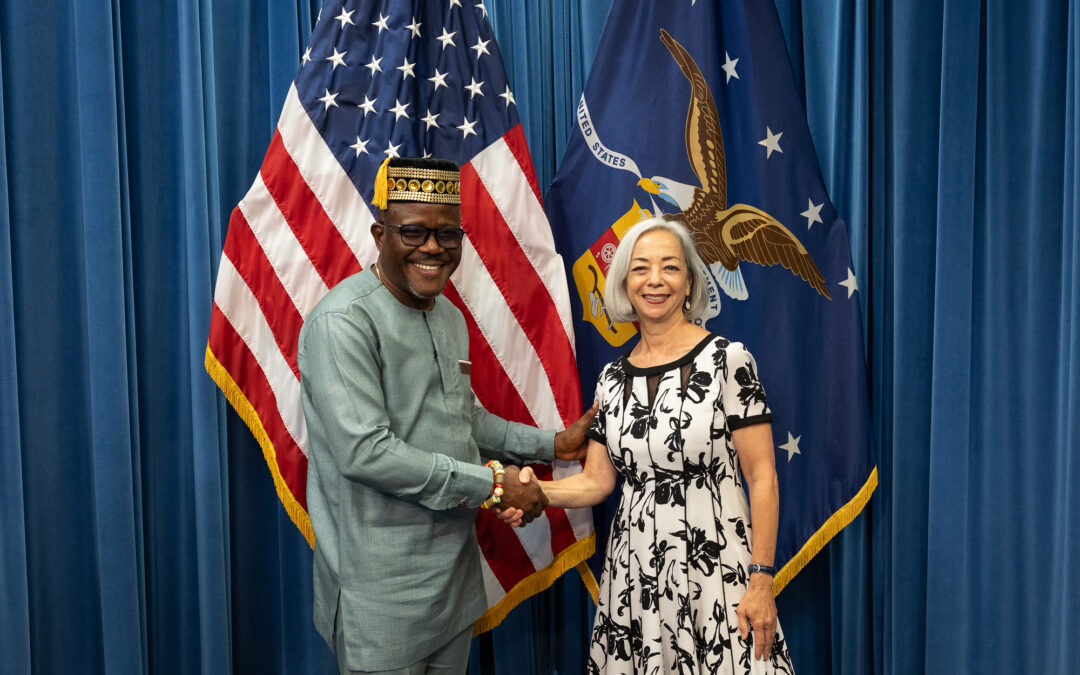General Agricultural Workers’ Union of Ghana (GAWU) Deputy General Secretary Andrews Addoquaye Tagoe was recognized last month by the U.S. Department of Labor (USDOL) for his role in advancing child and worker rights and for reducing child labor in Ghana’s agricultural industry.
“Where the union is present, child labor is absent,” Tagoe said about GAWU’s campaign to end child labor on Ghana’s cocoa farms.
Alarmed by increasing child labor in Ghana and Ivory Coast cocoa production, GAWU is addressing child labor in cocoa farming communities by applying a child-labor-reduction model honed in fishing communities on Lake Volta. The program raises awareness and incomes of parents so that kids can stay in school.
Although the cocoa industry’s biggest companies pledged to eradicate the “worst forms” of child labor in their supply chains nearly 20 years ago, up to 2 million children are estimated to be engaged in cocoa production in West Africa—primarily in Ghana and Ivory Coast. The two countries together supply roughly 60 percent of the world’s cocoa beans. As cocoa production in both countries has increased, so has child labor.
The profitable global chocolate market last year was worth $132.65 billion, with three major global chocolate brands together earning almost $4 billion in profits from chocolate sales while a fourth global brand’s confectionery profits totaled $2 billion. The four corporations on average paid out 97 percent of their total net profits to shareholders in 2023, reports Oxfam. Meanwhile, up to 58 percent of cocoa farmers in Côte d’Ivoire and Ghana were living below the World Bank extreme poverty line in 2021 and up to 90 percent did not earn a living income. According to the Child Labor Coalition, of which the Solidarity Center is a member, the cocoa industry must pay a living income while scaling up programs that identify child laborers and ensure that children can go to school.
”Building worker voice at local and national levels for farmers to benefit from higher cocoa prices and the profitable global chocolate industry will help end child labor, says GAWU.
Children in Ghana are subjected to the worst forms of child labor, including in fishing and cocoa production, reported USDOL in 2022. More than half of children living in agricultural households in Ghana are reportedly engaged in child labor, most in at least one form of hazardous child labor.
By organizing and formalizing the agricultural economy in rural areas and working with communities to eliminate child labor, Tagoe has developed and implemented child labor free zones resulting in ‘withdrawal of thousands of children in rural communities from the worst forms of child labor,’ said Thea Lee, USDOL Deputy Secretary for International Affairs at the award ceremony.
“An Africa without child labor is possible,” Tagoe said in his acceptance speech.
Tagoe was co-recipient of the 2024 USDOL’s Iqbal Masih Award for the Elimination of Child Labor with Egyptian civil society organization Wadi El Nil. The award honors its namesake, a Pakistani child sold into slavery at age four to work as a carpet weaver and who, after escaping at age 10, became an outspoken public advocate against child exploitation and died tragically at the age of 12.
Watch a Solidarity Center video about GAWU’s fight against child labor in cocoa production.

